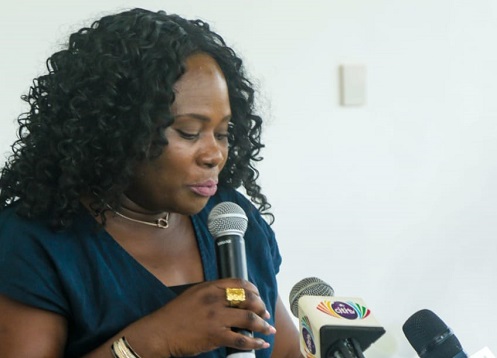
Effects of climate change: Food shortage imminent - Experts
A group of climate change experts and academics have warned of an imminent food shortage in the country if drastic measures are not taken to reverse the adverse effects of climate change.
Advertisement
They stated that studies have shown climate change is real, and recent heatwaves, interrupted rain patterns, and extreme weather conditions are already taking a toll on agriculture.
Panelists
The speakers included Dr. Lloyd Larbi from the University of Environment and Sustainable Development in Somanye, Dr. Steve Manortey from Ensign Global College, Lady Evelyn Botchway from the Africa Millennium Heritage Foundation, and a climate change expert based in the United States of America, Manye Angmorkuor Yoko I, the Development Queen Mother of Manya Krobo Traditional Area and an environmentalist, Nene Tettey Akora I from Manya Krobo Traditional Council (a retired medical doctor and environmentalist). They all painted a gloomy picture and called for immediate action.
Dr. Larbi, who has published several research papers on climate change and agriculture, highlighted that Earth's temperature is increasing to an unbearable level, pushing everything to extremes.
"Already, we are importing some basic food items, including tomatoes and onions. Can you imagine what the situation will be like if the weather patterns do not change?" he asked.
Tree-planting
While commending the government for its tree-planting initiative, Dr. Larbi emphasized that the activity should be expanded to cover the entire country, with a special focus on involving students.
"Government should intensify tree planting as a mitigation measure and promote eco-friendly activities, not forgetting education and enforcement of green initiatives laws," he said.
He also noted that many farmers were being adversely affected by the impact of climate change on food crops.
"Everything now is extreme -- it's either extreme heat or extreme rainfall, destroying homes and properties," the academic added.
Vulnerability
The convener, Lady Botchway, from the Africa Millennium Heritage Foundation, which hosted the program on "Africa and Diaspora Development Initiatives on Environment and Climate Change Action (ADECA)," stated that Africa is the most climate-vulnerable region, despite contributing the least to historic carbon emissions.
She called for a focus on renewable energy such as solar, wind, and hydropower to support agriculture.
"The extreme weather events are transforming ecosystems around the world and threatening entire species of plants and animals," she said.
The other speakers, including Nene Tettey Akora I, also called for a balance between the built environment and natural environment. They cautioned against prioritizing infrastructure development and beautification over environmental preservation.
"Failure to do this would lead to atrocities and commotion on the planet. There must be a harmonious co-existence where offices and homes have natural elements like trees and rivers existing side by side," Nene said.
Manye Angmorkuor Yoko I advocated for Ghanaians to take control of their diet by reducing polished foods and focusing on natural foods from the environment.




